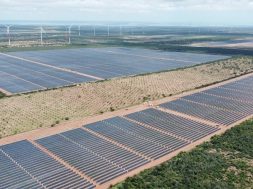
Congress Breaking Promises, Extending Tax Credits for Electric Vehicles, Wind, and Solar
It is not unusual for Congress to keep extending a supposedly temporary federal program, and that includes the tax credits for electric vehicles and wind and solar electric generation. For this reason, the Competitive Enterprise Institute opposed the 2015 tax extenders legislation despite several members’ insistence that it would be the last such extension, and that these provisions would sunset after a few more years. We were right, as the current Congress is hard at work moving back the deadlines yet again.
On electric vehicles (EVs), Rep. Dan Kildee (D-MI) of the House Ways and Means Committee is pushing to change the provisions that capped the $7,500 per vehicle tax credit once a manufacturer sold 200,000 such cars. H.R. 2256 proposes raising the cap to 600,000 vehicles but only slightly reducing the credit to $7,000. For Tesla, which has exceeded the 200,000 vehicle limit, and General Motors, which is nearing it, the extra 400,000 qualifying vehicles could generate $2.8 billion each for their EV purchasers, nearly half of which are wealthy Californians. Given that other automakers would have eventually reached and exceeded 200,000 in EV sales, the revised cap could be worth tens of billions of dollars in the years ahead. EVs are way past the point of the “infant industry” rationale for these tax credits, but that does not seem to matter.
Also under discussion for eventual inclusion in a big energy tax package are additional years for solar and wind production tax credits promised by Ways and Means Chairman Richard Neal (D-MA). These tax credits had been made more generous by the 2015 bill in exchange for ending them once and for all. It is not yet known how many post-sunset years the latest extension will provide.
One fringe benefit of the debate is that it provides a brief respite from the drumbeat of claims that wind and solar have plummeted in cost and are now cheaper than conventional electricity. If true, there would be no need for yet another extension of favored tax treatment for them.

















